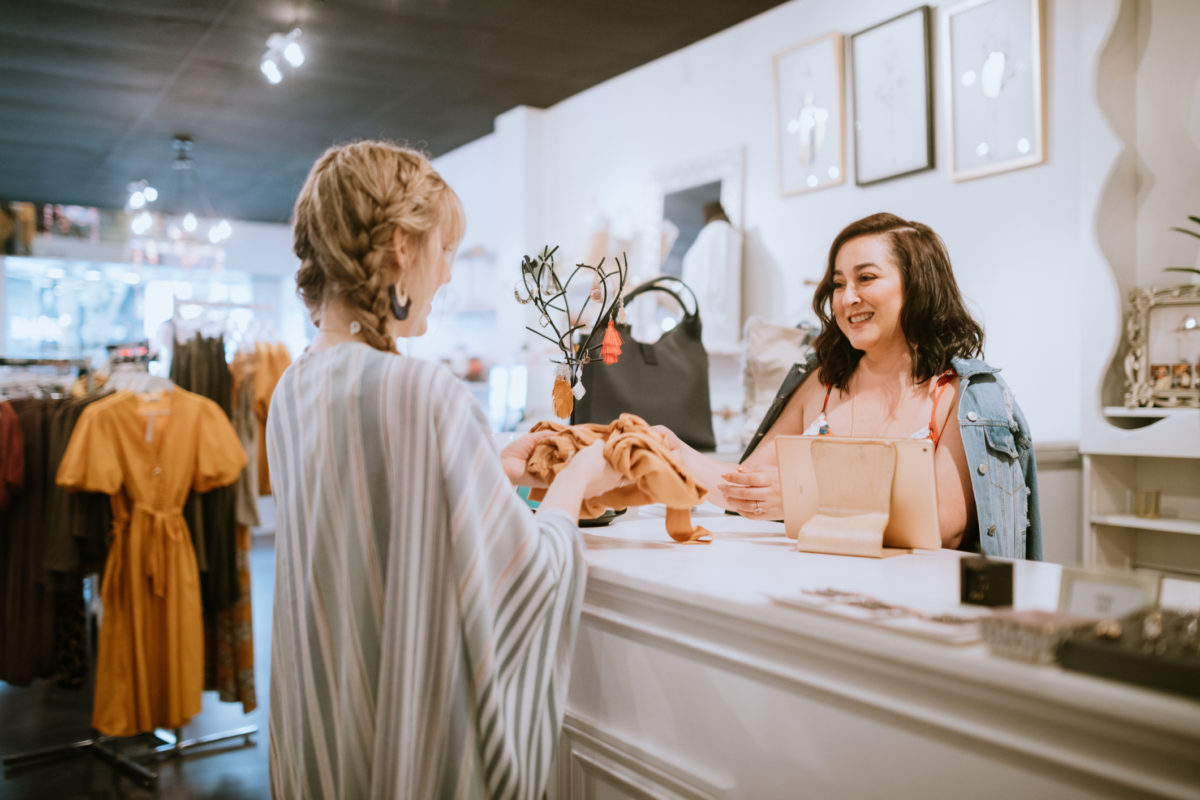We live in a digital age where opening a boutique online has never been easier, but is it a good idea in such a saturated market? Continue reading to weigh your options.
Do you have a brick-and-mortar boutique and are looking to reach more customers through an online service? Or are you opening a boutique online as your first business venture, wondering if online is the way to go?
Some may call the online boutique market saturated, with 2.5 million online today in America. But that shouldn’t deter you from opening your own. As long as opening a boutique online is practical, you should go for it.
What is a Practical Business Venture?
A practical business venture uses facts and plans, not dreams and wishes. They use a realistic analysis of the industry, set goals, and put forth great effort to help it succeed. For example, you are not being practical if you think your online boutique will be so great that it will stand out in a crowd of 2.5 million.
Being practical begins with understanding what it means to be an etailer.
Do You Need an Etailer When Opening a Boutique Online?
They are called etailers or electronic retailers because they are a business that sells directly to consumers using an online platform. Three types exist:
- Traditional retailers sell products made by other companies, and 950,000 are online today. Examples of traditional retailers include Amazon, the king of online selling, big box stores like Walmart, boutiques like Shein, and any department store with an online shopping option.
- Virtual goods are those you can download and enjoy but are not physical products. Virtual goods etailers sell virtual products, and today, there are 70,000 operating online. There are giants like Netflix for entertainment. There are also popular sites like Udemy for education and Canva for designing.
- Branded retailers sell products made by their own company and are the largest group of online retailers, with 1.5 million in the U.S. Companies like Gap, Old Navy, Madewell, Michael Kors, and Nike. Then there is Apple, named the most valuable worldwide brand in 2022.
Where Will Customers Find Your Boutique?
In keeping with being practical, you must consider all options for selling products online. Two significant options exist, one being an eCommerce platform on which you create a website exclusive to your boutique. The other is a marketplace.
With a website, you are responsible for the following:
- Building and maintaining your website
- Buying products
- Taking photos of the products
- Listing products
- Marketing products
- Shipping orders
If you also have a brick-and-mortar boutique, keeping up with a website may take more time than you must dedicate to online selling. If you only sell online, having a website helps showcase your brand.
Marketplaces are the other platforms to establish a boutique online. A marketplace is a platform created by a much larger company. They allow you to use their platform to sell your boutique items for a percentage of your sales. Examples include Etsy, Walmart, and Amazon.
While they charge multiple fees, they maintain the platform and can even ship products on your behalf from their distributors unless you want to handle all shipping tasks. When choosing eCommerce or marketplace, consider your budget, time, and marketing abilities.
Where Will You Buy Products When Opening a Boutique Online?
The items you sell in your online boutique can make or break your business financially. If you pay too much for products, you can’t mark them up enough for substantial profits. Buying cheap products often means low quality, which will not keep customers coming back for more.
Being practical means working with a wholesale supplier. They can access designers and manufacturers who sell them products in bulk for a discount. The wholesale then gives you the same option. The more you buy, the bigger the discount and the higher the profit margin.
Before you decide to open a boutique online, find a good wholesale supplier.
What is Your Marketing Plan?
Practical online boutique marketing is a must for a successful business. Because your boutique is online, your marketing efforts should be online. Your customer base is global versus local or regional. Consider facts like 49% of product searches begin on Amazon and 36% on Google. With stats like these, Amazon is looking like the marketplace to sell online. Not so fast.
Customers are 80% more likely to visit a brick-and-mortar store if they can view the inventory online first. Also, 88% of people who search for a “boutique near me” end up visiting that boutique within a week. Now it seems like having your online boutique could be the way to go.
A practical marketing plan considers the following:
- Creating social media ads and posts
- Targeting customers
- Collecting customer data
- Launching new or niche products
- Announcing promotions and sales events
- Using influencers for high-end products
- Building an email list
- Blogging or adding content
To be practical, create a marketing plan that allows you to do the most while staying within your marketing budget.
What Are Your Policies and Procedures?
Policies and procedures are protected when posted in your online boutique. You can display them or a link to them anywhere in your store, but the storefront and payment pages may get more attention. This is important since they state specifically what a customer can expect when buying from your boutique.
Rules for purchasing, returns, refunds, customer services, shipping, payment methods, shipping, size charts, and other important information should be posted.
The Verdict
The answer to whether opening a boutique online is a worthwhile business venture is that yes, it can be if you use practical business skills, like the ones listed above and below:
- Study the laws of owning an online boutique and selling
- Define your brand, including vision and mission
- Find a niche and avoid copying other online boutiques
- Hire professionals when the budget allows (e.g., web designers, content creators, photographers)
- Provide multiple, modern payment options (checks are a thing of the past, but Venmo is hot)
- Build a good relationship with your wholesaler for insider scoop and benefits
Practical business owners lead practical business ventures.








No Comments